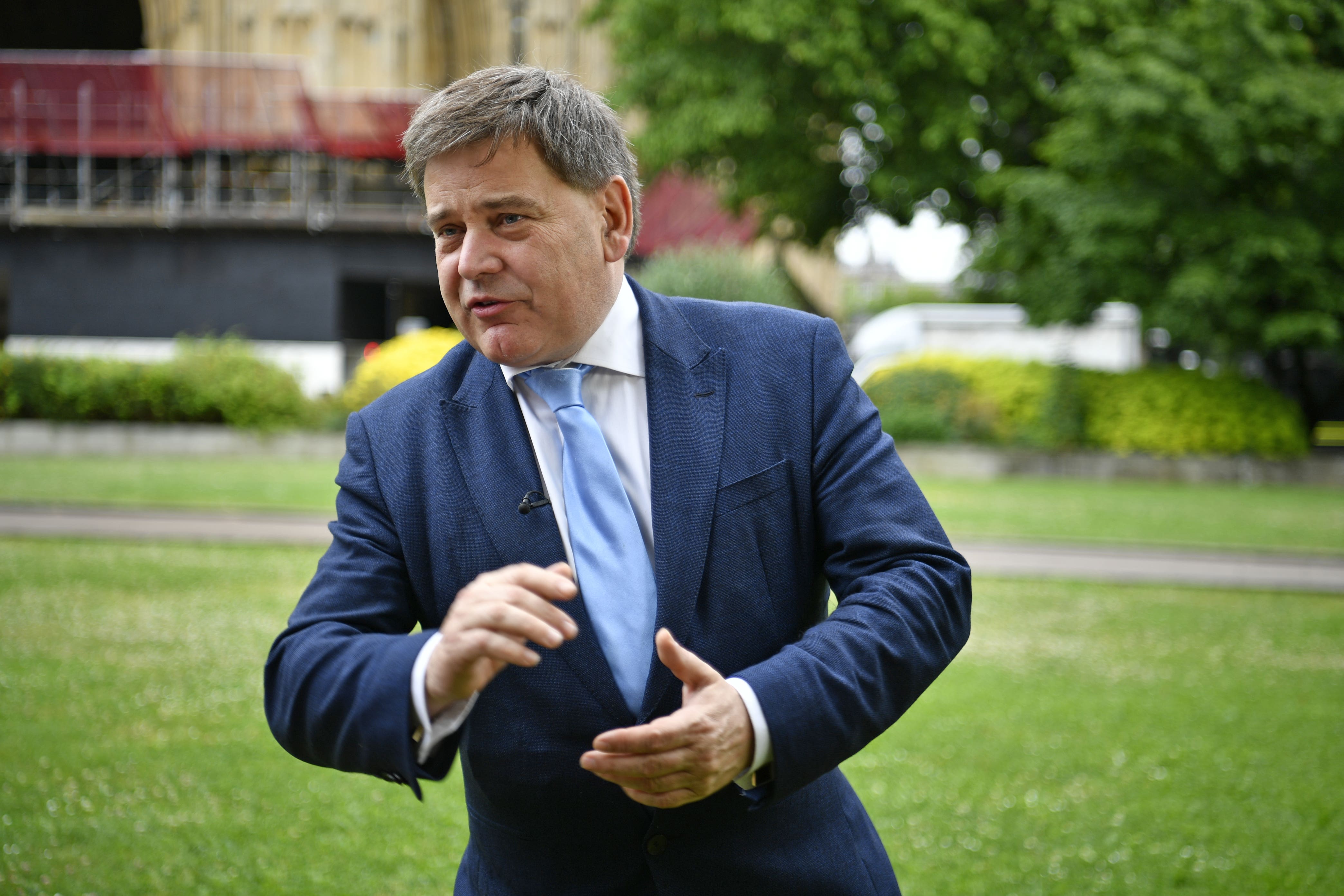Andrew Bridgen joins a growing number of whipless MPs
They outnumber the Liberal Democrats in the House of Commons, as Sean O’Grady explains


If they were a political party, those MPs who have had their party whip withdrawn would be the fourth largest group in the House of Commons.
Andrew Bridgen has become the 15th member of that group after an inaccurate and highly offensive tweet about Covid vaccination. “As one consultant cardiologist said to me,” he wrote, “this is the biggest crime against humanity since the Holocaust.” Bridgen’s remarks were the latest in a series of misfortunes he’s brought on himself, and he is currently on a five-day suspension from parliament over a previous offence of failing to declare a lobbying conflict of interest. His views were condemned by Rishi Sunak at Prime Minister’s Questions, and chief whip Simon Hart said: “As a nation we should be very proud of what has been achieved through the vaccine programme. The vaccine is the best defence against Covid that we have. Misinformation about the vaccine causes harm and costs lives."
Bridgen has crossed a line and seems likely to face a lengthy period in political limbo. Removing the whip means an MP no longer represents a party in parliament, though they aren’t necessarily also removed from the list of party members. A party will normally maintain contact with a whipless former colleague with a view to possible rehabilitation.
Although they are no longer required to follow the party line in Commons votes, the whipless MPs will often carry on voting as if they were still part of the party grouping. It’s a disciplinary measure that effectively puts an MP’s career on hold, and makes a politician a bit of a pariah, but does not necessarily end it. Some MPs have the whip restored early if a government fears losing a crucial vote, as happened when Theresa May was battling to get her Brexit deal through parliament.
For some, going whipless does no harm. In the 1930s and 1950s, left-wing rebels Aneurin Bevan and Stafford Cripps respectively were constantly having their Labour whip removed, or being threatened with it, before eventually becoming senior ministers and key players in Labour governments. Iain Duncan Smith was one of the more prominent Conservative Maastricht whipless rebels in the 1990s, nicknamed “the b*****ds”, but by 2001 he was party leader. On the whole, though, losing the whip is a negative. If an MP remains whipless when a general election comes round, they cannot contest the seat for their party.
The current 15 whipless MPs – collectively outnumbering the parliamentary Liberal Democrats by one – sit as “independents” and are certainly a mixed bag. They comprise seven Labour, six Conservatives, one SNP and one Plaid Cymru. A few have been rendered semi-homeless for political reasons, the most obvious example being Jeremy Corbyn. Others have been asked to stand aside from their normal allegiance after serious allegations about their personal behaviour. Julian Knight, ex-Conservative member for Solihull, was the latest to do so, in December. The “longest-serving” whipless MP is Jonathan Edwards, deprived of the whip by Plaid Cymru after arrest for assaulting his wife; he was later cautioned. Most of the 15 have been accused of personal wrongdoings of varying kinds, often connected to sexual misconduct. Only one could be said to have had a major political repercussion: Chris Pincher, accused of groping men in May 2020, was the proximate cause of the fall of Boris Johnson as prime minister, who had apparently known about his behaviour before he promoted him.
Bridgen, who has had more than his fair share of scrapes, could well remain whipless at the time of the next election, and would have little chance of holding his seat of North West Leicestershire if he chose to stand as an “independent Conservative” or similar. Sunak’s words at PMQs were particularly damning, and hinted at long-term censure. John Mann, former Labour MP and the government’s independent adviser on antisemitism, added: “Bridgen should not be allowed to stand again as a Tory. There is no possibility that Bridgen can be allowed to stand at the next election. He cannot claim that he didn’t realise the level of offence that his remarks cause.”
After some hours, and much protest, Bridgen’s tweet was deleted without apology, but plenty of his anti-vax propaganda is online and thus his job remains very much on the line.



Join our commenting forum
Join thought-provoking conversations, follow other Independent readers and see their replies
0Comments